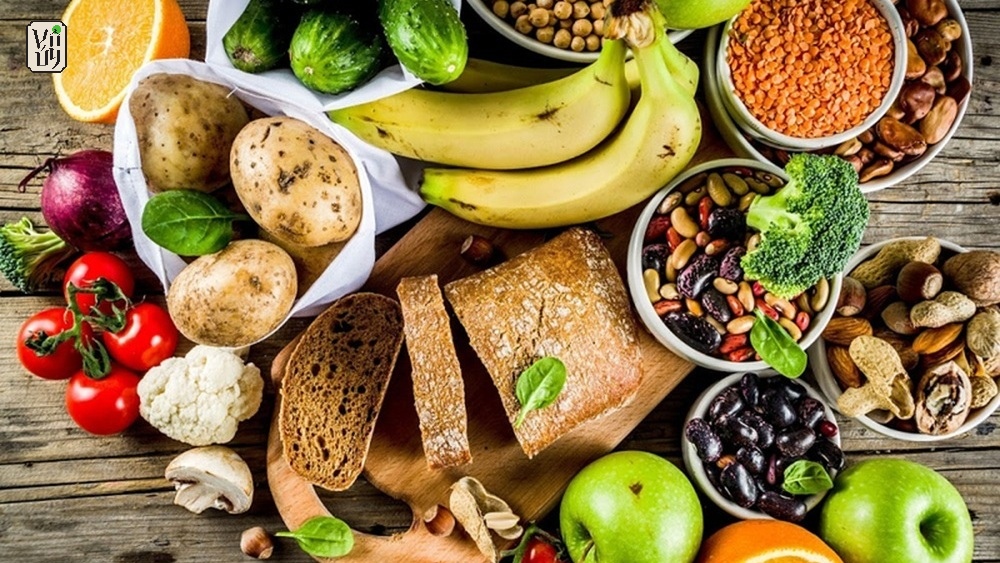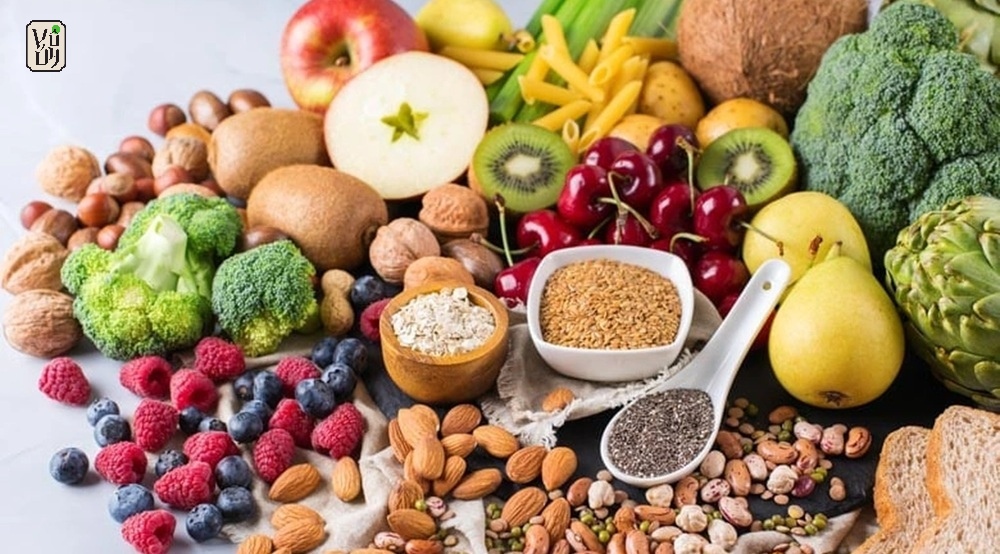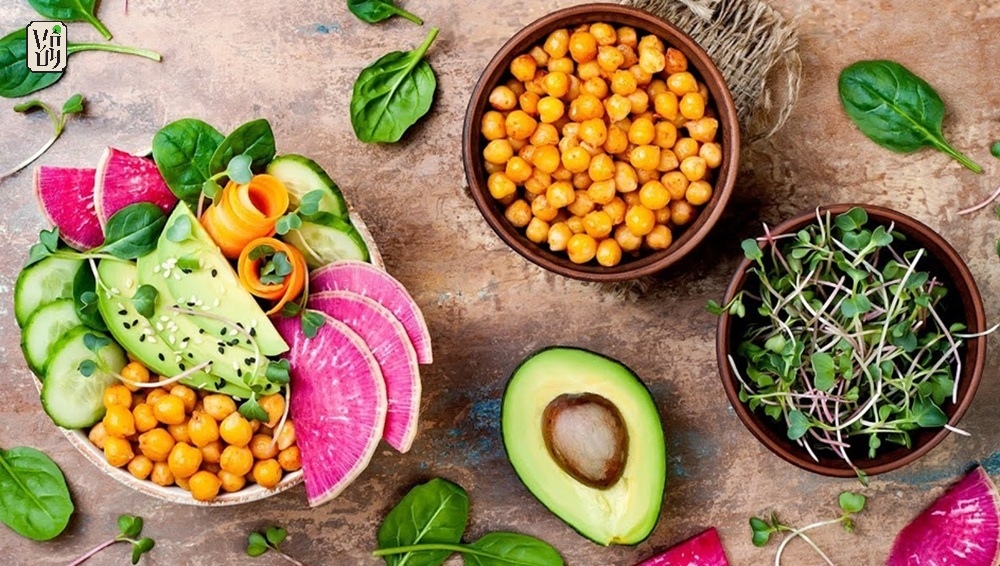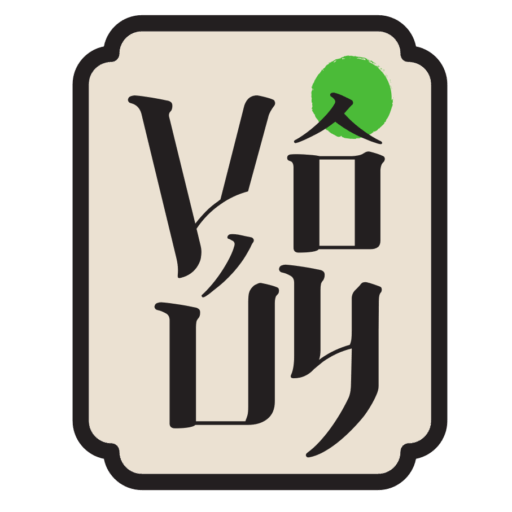What Is a Vegan Diet? A Complete Guide for Beginners
A vegan diet is more than just a food trend — it’s a lifestyle that embraces health, compassion, and sustainability. More and more Vietnamese people are choosing to go vegan to improve their well-being, protect the environment, and express respect for all living beings. So, what exactly is a vegan diet? How is it different from vegetarianism, and how can you start this lifestyle the right way? Let Vo Uy Vegetarian Restaurant guide you through everything you need to know in this article.
What Is a Vegan Diet?
A vegan diet completely eliminates all animal-derived products such as meat, fish, eggs, dairy, honey, and even indirect animal ingredients like gelatin or animal fat. Vegans only consume foods that come from plants — including vegetables, fruits, legumes, nuts, grains, and mushrooms.
The concept of veganism originated from ancient philosophies in India and Greece. In the 19th century, vegetarianism gained popularity in England, and in 1944, Donald Watson founded The Vegan Society, defining “vegan” as a way of living that seeks to avoid the exploitation of animals. Today, the vegan lifestyle has spread across the world, driven by growing awareness of health, animal ethics, and climate change.

The Difference Between Vegan, Vegetarian, and Strict Vegetarian
While veganism and vegetarianism may seem similar, they have key differences. A vegetarian may consume eggs, milk, or dairy products but avoids meat and fish. A vegan, on the other hand, strictly eliminates all animal-based ingredients, including those hidden in processed foods like gelatin, casein, or whey.
A strict vegetarian (sometimes called a “pure vegetarian”) may overlap with veganism in some regions, but technically, strict vegetarians might still follow sub-types such as lacto-vegetarian (consumes dairy) or ovo-vegetarian (consumes eggs). Understanding these distinctions helps you choose the diet that best fits your personal goals and values.
| Diet Type | What They Eat | Level of Restriction |
|---|---|---|
| Regular Vegetarian | No meat or fish, but may consume eggs and dairy | Moderate |
| Strict Vegetarian | Long-term vegetarian diet that may include eggs or dairy | High |
| Vegan | Excludes all animal-derived products | Absolute |
The Benefits of a Vegan Diet
Improves Overall Health
Studies show that a vegan diet can help lower the risk of heart disease, type 2 diabetes, obesity, and certain cancers. Plant-based foods are rich in fiber, vitamins, minerals, and antioxidants that keep your body strong, your skin glowing, and your digestive system healthy.
Protects the Environment
By reducing meat and dairy consumption, you help conserve water, land, and energy. Each person who switches to a vegan diet contributes to lowering CO₂ emissions and reducing the environmental impact of industrial livestock farming.
Cultivates Compassion and Inner Peace
Veganism reflects kindness toward all living beings. By eating foods that cause no harm to animals, people often experience a deeper sense of peace and mindfulness. This way of eating aligns with Buddhist principles — nourishing both the body and the soul.

Risks and Things to Watch Out For
While the vegan diet offers many benefits, it requires proper nutritional understanding to avoid deficiencies.
-
Vitamin B12, iron, calcium, and omega-3 deficiency: These nutrients are mainly found in animal products, so vegans should get them through fortified foods or supplements.
-
Overconsumption of processed vegan food: Some beginners rely heavily on mock-meat products that are high in oil, salt, or sugar. This can make the diet unbalanced.
-
Lack of variety: Limiting your meals to a few types of vegetables can lead to protein and mineral deficiencies.
To maintain balance, make sure your diet includes a wide range of legumes, grains, nuts, seeds, fruits, and vegetables throughout the week.
How to Start a Vegan Diet Successfully
Begin with Small Steps
You don’t have to go fully vegan overnight. Start by trying a plant-based diet one or two days a week, then gradually cut down red meat, seafood, eggs, and dairy. This slow transition helps your body adjust and prevents cravings.
Focus on Whole Foods
Choose minimally processed foods such as fresh vegetables, fruits, beans, mushrooms, nuts, and brown rice. These are naturally nutrient-dense and preserve the original flavors of plants.
Learn to Read Food Labels
When shopping, carefully check product labels for animal ingredients like gelatin, casein, whey, or honey. Look for certified “Vegan” or “Plant-Based” symbols to ensure safety.
Plan Your Meals
A simple 7-day vegan meal plan might include:
-
Breakfast: Oatmeal with almond milk and fresh fruit
-
Lunch: Brown rice, tofu with mushroom sauce, and pumpkin soup
-
Dinner: Stir-fried vegetables or quinoa salad
-
Snacks: Cashews, almonds, or green vegetable juice
Change your menu seasonally to keep meals exciting and sustainable in the long term.

Frequently Asked Questions About Veganism
Do vegans lack protein?
No. Protein is abundant in soybeans, mung beans, chia seeds, walnuts, oats, and mushrooms. Combining diverse plant foods ensures adequate nutrition.
Does a vegan diet help with weight loss?
It can. A vegan diet is naturally high in fiber and low in calories, helping you manage weight effectively — as long as you limit fried or processed vegan foods.
Can children and the elderly follow a vegan diet?
Yes. With proper planning and supplementation (especially vitamin B12 and calcium), a vegan diet can support all age groups.
Is a vegan diet expensive?
Not necessarily. Using local produce such as vegetables, beans, and rice can actually cost less than a meat-based diet.
Conclusion
Adopting a vegan diet is a journey that nurtures both body and mind. It promotes health, inner peace, and a cleaner planet. Starting with small, mindful changes, you’ll soon feel lighter, more energized, and connected to a compassionate way of living.
If you’re looking for a place to enjoy authentic vegan cuisine, visit Vo Uy Vegetarian Restaurant, where plant-based dining is elevated into an art form. Every dish is crafted with care, preserving natural flavors while spreading the message of “Eat well – Live kindly.” Call 0902 353 527 today for personalized menu recommendations!


 0902 353 527
0902 353 527  cskh@nhahangvouy.com
cskh@nhahangvouy.com 

